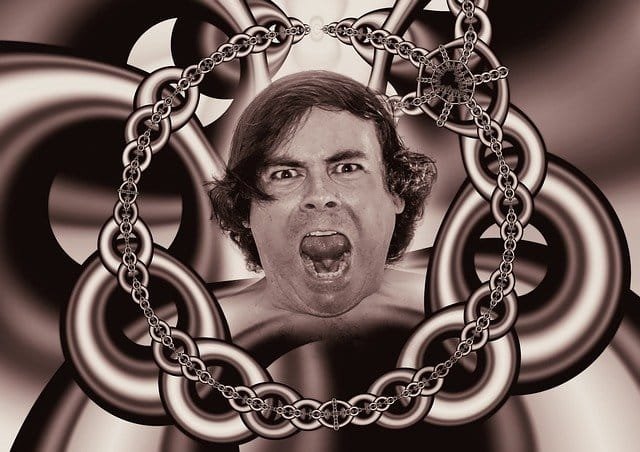8 Things That Can Trigger a Psychotic Disorder
Did you know that there are many things that could trigger a psychotic disorder? This may come as a surprise to some, as most people think of psychological factors (such as stress) or biological factors (such as genetics) when considering what can cause psychosis. However, there are other triggers that aren’t discussed as often, such as sleep disturbances and drug use. In this article, we’ll be looking at eight different triggers that have been known to cause psychotic disorders and how to prevent them so you can avoid these mental illnesses altogether.

1) Seasonal Changes
Seasonal changes are among one of many causes that can trigger a psychotic disorder. They also impact every human being at some point in their lives, so if you experience them, there’s no need to panic. Seasonal changes include times of year where there are drastic temperature changes. Some people struggle more than others when it comes to weather fluctuations (i.e. ). If you find yourself feeling depressed or anxious during certain seasons, try going for walks outside during those months to help alleviate symptoms. If these seasonal changes don’t affect your mood, then it may be something else causing your feelings of depression or anxiety.
2) Stressful Life Events
Stressful life events, like medical emergencies or death in your family, can trigger a psychotic disorder or episodes of psychosis. It’s crucial that you know how to identify your own personal stress triggers—and what ways you can help ease them. Asking for help is one of them. Whatever trauma causes an episode, it’s often easier said than done when caught up in delusions or hallucinations—but reaching out to trusted friends or family members can be a big step toward recovery.
3) Changes in Sleep Patterns
Changes in sleep patterns, like insomnia or oversleeping, can affect one’s mood. The sleep-wake cycle regulates a person’s circadian rhythm. Anything that causes an imbalance of melatonin—the hormone that promotes sleep—can result in symptoms of depression or anxiety. Similarly, anything that disrupts circadian rhythms can lead to psychotic episodes or delusions.
4) Exposure to Chemicals or Infections
While it’s not fully understood, a number of infections and chemicals can trigger a psychotic disorder. It’s important to know that psychosis is not synonymous with mental illness—psychosis is simply a term for loss of contact with reality that results from a medical condition. The loss of contact with reality may be temporary or permanent, depending on what triggered it. Your first step toward preventing psychotic episodes caused by outside triggers is awareness.
5) Use of Recreational Drugs (Drugs, Alcohol, Tobacco, etc.)
It’s not uncommon for young people to experiment with drugs, alcohol, or tobacco. It’s also not unusual for them to experience some mild withdrawal symptoms (cravings, irritability) when they stop using these substances. However, it’s critical that such experimentation doesn’t lead to addiction. At best, long-term drug or alcohol use can lead to psychotic episodes—including drug-induced psychosis—in those who are predisposed toward developing psychotic disorders.
6) Taking Antipsychotics (drugs prescribed by your doctor)
While antipsychotics can be effective in treating schizophrenia, they can also cause devastating side effects such as movement disorders, tardive dyskinesia (involuntary movements), hyperglycemia (high blood sugar), high cholesterol, diabetes mellitus, elevated weight gain, and hyperlipidemia (abnormal lipid levels). While some people respond well to antipsychotics while others may not—it is impossible to tell who will react how until you’ve been on them for awhile.
7) Low Blood Sugar (Hypoglycemia)
If you experience symptoms of low blood sugar, including irritability, paranoia, hallucinations or mood swings, try carrying around snacks such as nuts or granola bars. If possible, eat meals that are higher in protein. This helps stabilize your blood sugar levels and also keeps you full longer. Other ways to prevent hypoglycemia include avoiding caffeine or other stimulants (e.g., alcohol) because they can lead to rapid drops in blood sugar.
8) Medications Not Prescribed by a Doctor
Many psychotropic medications are available in over-the-counter forms. This is problematic because users may not know how to appropriately dose these medications, which can lead to mood swings or even full-blown psychosis. Be sure your medications are prescribed by a medical professional in order to avoid adverse reactions.
Help and Resources for people with a Psychotic Disorder
If you or someone you know has a psychotic disorder, it’s important to reach out for help as soon as possible. If treatment is not sought, symptoms can worsen and lead to dangerous consequences, including suicide. Thankfully, there are treatments that can help people with psychotic disorders function normally in society. Certain medications can be taken on an as needed basis for acute symptoms like hallucinations or paranoia. Long-term treatment includes therapy, medication management and coping strategies aimed at preventing future relapse into psychosis.
More information:
NAMI (National Alliance on Mental Illness) – https://www.nami.org/About-Mental-Illness/Mental-Health-Conditions/Psychosis
